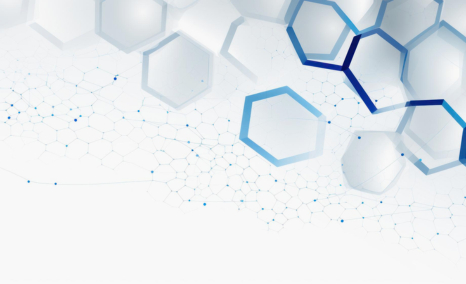Physiotherapy Equipment: Depicting the Market Dynamics and Key Trends Driving the Growth
Apr 26, 2023
Table of Contents
Physiotherapy, also called physical therapy, is critical in providing holistic treatment for various disorders, injuries, and diseases. It improves mobility, strength, balance, and coordination. Especially in the case of injury, or chronic pain, it can have a long-lasting impact and greatly help manage the symptoms to a great extent. To carry out physiotherapy, physiotherapists use various devices in their practice, such as electric stimulators, cryotherapy units, laser therapy units, and pressure therapy units. Apart from clinics and hospitals, some of the Physiotherapy Equipment can be used at home during in-home physio sessions. Due to intense competition and rising demand, over the past few years, immense growth and developments have been registered in the Physiotherapy Equipment Market. As per DelveInsight’s latest assessment, the global Physiotherapy Equipment Market was valued at USD 18.67 billion in 2021 and growing at a CAGR of 7.44% during the forecast period (2023 to 2028); it is anticipated to reach USD 28.62 billion by 2028.
Some of the key factors, such as the rise in the geriatric population leading to an increase in the number of osteoporosis cases, the increasing prevalence of musculoskeletal disorders, and the rising incidence of Spinal Cord Injuries (SCI), among others, are driving the Physiotherapy Equipment Market growth. Similarly, a favorable approach by the regulatory authorities for the approvals of physiotherapy equipment is also been registered in the domain. Several new products have been introduced in the market by MedTech giants. Similarly, many products are under development and are anticipated to hit the market in the near future.
Downloads
Article in PDF
Physiotherapy Devices Overview, Product Types, and Applications
Physiotherapy equipment treats various disorders, injuries, and diseases. It helps not only to relieve pain but also to improve strength, endurance, function, and movements in the affected areas of the body. Several types of Physiotherapy Equipment are available in the market to cater to the needs.
As per the by-product types, the Physiotherapy Equipment consists of electrotherapy, ultrasound therapy, shockwave therapy, laser therapy, and others. Similarly, as per the application, the Physiotherapy Equipment is classified as musculoskeletal, neurology, cardiovascular, and others. In the by-product type segment of the physiotherapy equipment market, electrotherapy equipment is expected to hold significant revenue compared to other product types due to several benefits associated with these types of products. Electrotherapy equipment reduces nerve pain and promotes the healing of musculoskeletal injuries. Moreover, they act by non-invasive methods and are drug-free pain control with minimal to no side effects. Electrotherapy equipment emits electrical impulses that disrupt or inhibit the body’s pain signals to decrease pain as well as helps to release endorphins (chemical messengers) which reduce pain in the body naturally and induce a warm sensation throughout the body, which enhances blood circulation and promotes recovery. Moreover, the intense developmental activities are also leading to the growth of electrotherapy equipment.
What Drives the Physiotherapy Equipment Market Growth? And what are the Key Barriers
Globally, the rise in the geriatric population is one of the key factors driving the demand for Physiotherapy Equipment. It is observed that physiotherapy plays a key role in restoring movement and function when the person is affected by an injury, illness, or disability. It reduces the risk of injury or illness in the future to a greater extent. In old age, people are more prone to injuries and disability. Along with physical disabilities, aging is closely associated with diseases such as Parkinson’s disease, muscular dystrophy, rheumatoid arthritis, and others. As per the estimate, between the years 2015–2050, people aged 60 and above will get doubled from 12-22% and will reach 2.1 billion by the year 2050. Moreover, by the year 2030, 1 in 6 people in the world will age 60 years or above. Furthermore, the number of people aged 80 years or above is expected to get triple between the years 2020 and 2050 to reach 426 million around the world. Thereby, the growing geriatric population is anticipated to drive the demand for Physiotherapy Equipment in the coming years.
Moreover, the increasing prevalence of musculoskeletal disorders is another key factor for the rising demand for physiotherapy equipment. The global cases of musculoskeletal disorders are anticipated to grow in the years to come. Physiotherapy equipment can assist in restoring the function & movement of joints as well as muscles and can help relieve pain. However, the availability of alternative therapies, such as acupuncture, to reduce pain and the lack of trained & skilled professionals for physiotherapy are anticipated to hinder the physiotherapy equipment market growth.
Evaluating the Regional Physiotherapy Equipment Market Outlook
North America is a major market for Physiotherapy Equipment. The region has a very high demand for new and innovative Physiotherapy devices. As per the recent estimate by DelveInsight, among all the regions, North America is anticipated to hold a major chunk of the global physiotherapy equipment market in the coming years.
Some of the key factors, such as the rising incidence of Spinal Cord Injuries (SCI) and the surge in the regulatory approvals for physiotherapy equipment in the region, are expected to boost the physiotherapy equipment market growth in the region. The rising incidence of SCI also increases the chances of pain, directly stimulating the demand for physiotherapy equipment. Similarly, over the past few years, a surge in regulatory approvals for physiotherapy equipment has been observed in the region, which is anticipated to continue in the coming years as well. Moreover, the region has a very active presence of Physiotherapy Equipment companies, which provide a conducive growth environment.

Key Companies in the Physiotherapy Equipment Market
Globally, several major MedTech giants are operating in the Physiotherapy Equipment Market to cater to different needs and to grab the market share. Some of the key players actively working in the domain include BTL, Ito Co Ltd, EMS Physio Ltd, Dynatronics Corporation, COMPASS HEALTH BRANDS CORP, Performance Health, Zynex Medical Inc, DJO LLC, Whitehall Manufacturing, Zimmer MedizinSysteme GmbH, STORZ MEDICAL AG, Mettler Electronics Corp, A. Algeo Ltd, HMS Medical Systems, Johari Digital, NEVRO CORP, BioElectronics Corporation, among others. Owing to the rising demand for Physiotherapy Equipment and the high revenue prospects in the domain, several new players are anticipated to enter the market in the upcoming years.
Recent Developments in the Physiotherapy Equipment Market
In recent years, several major clinical, commercial, and regulatory developments have been registered in the Physiotherapy Equipment Market. Some of the key developments in the market include –
- For instance, in May 2022, ManaMed, a worldwide leader in home DVT prevention, orthopaedic bracing and medical devices, announced the U.S. Food and Drug Administration (FDA) approval for its ManaSport™ ultrasound therapy Class II device for the United States. The apparatus is a brand-new ultrasound therapy equipment that treats soft-tissue injuries while also relieving pain.
- In July 2021, Nevro Corp, a global medical device company, announced FDA approval of its Senza® System for the treatment of chronic pain associated with Painful Diabetic Neuropathy (PDN).
- In May 2021, ITO CO LTD, a pioneer of electrophysical agents in Japan, announced that its electrical muscle stimulator for temporomandibular joint (TMJ) pain relief “D function” has received Food and Drug Administration (FDA) to treat TMJ dysfunction and associated pain.
- In October 2020, NanoVibronix, a medical device company, launched a new ultrasound pain management equipment, named PainShield Plus, for the treatment of multiple areas of pain in tandem.
- In February 2020, BioElectronics Corporation, a medical device company, received US FDA approval for its drug-free ActiPatch medical device for treating musculoskeletal pain. It uses electromagnetic pulse treatment, which provides long-lasting pain relief for chronic conditions such as arthritis, back pain, knee pain, and others.
Physiotherapy Equipment Market – Future Outlook and Perspective
In the coming years, the sedentary lifestyle, poor eating habits, and hectic lifestyle are anticipated to increase the burden of chronic diseases. Physiotherapy can be important in managing chronic disease, stress, and other lifestyle-related disorders and overcoming the growing burden. Similarly, it is likely to help manage conditions such as anxiety, back pains, stress headaches, neck pain, and obesity, among other diseases. The future of physiotherapy equipment looks promising as technology continues to evolve and improve. Several major MedTech giants are actively investing and seeking collaboration in the domain to grab the market share. Companies in the global market are progressively focused on technological breakthroughs and developing new goods to provide superior and user-friendly devices. Some of the players have started working to develop innovative devices embedded with new technologies such as virtual reality (VR). Virtual reality (VR) equipped devices are anticipated to have a greater role in rehabilitation. It is expected that VR can help patients regain mobility and function by providing a realistic simulation of real-life scenarios, allowing them to practice movements in a safe environment.
Similarly, some companies focus on wearable physiotherapy devices that can track vital signs, monitor progress, and provide feedback on exercises performed outside the clinic setting. These physiotherapy devices are expected to provide motivation to the user with the desired result. Furthermore, advancements in robotics, exoskeletons, and interactive video games, are also expected to play a significant role in the physiotherapy equipment market. Overall, the advancement in technology and innovation is anticipated to play a key role in improving the physiotherapy equipment design and functionality, which in turn are predicted to stimulate the demand and the growth of the market. With the approval and the launch of these devices, both therapists and patients are expected to benefit immensely and leading to better outcomes and increased efficiency.

Downloads
Article in PDF



